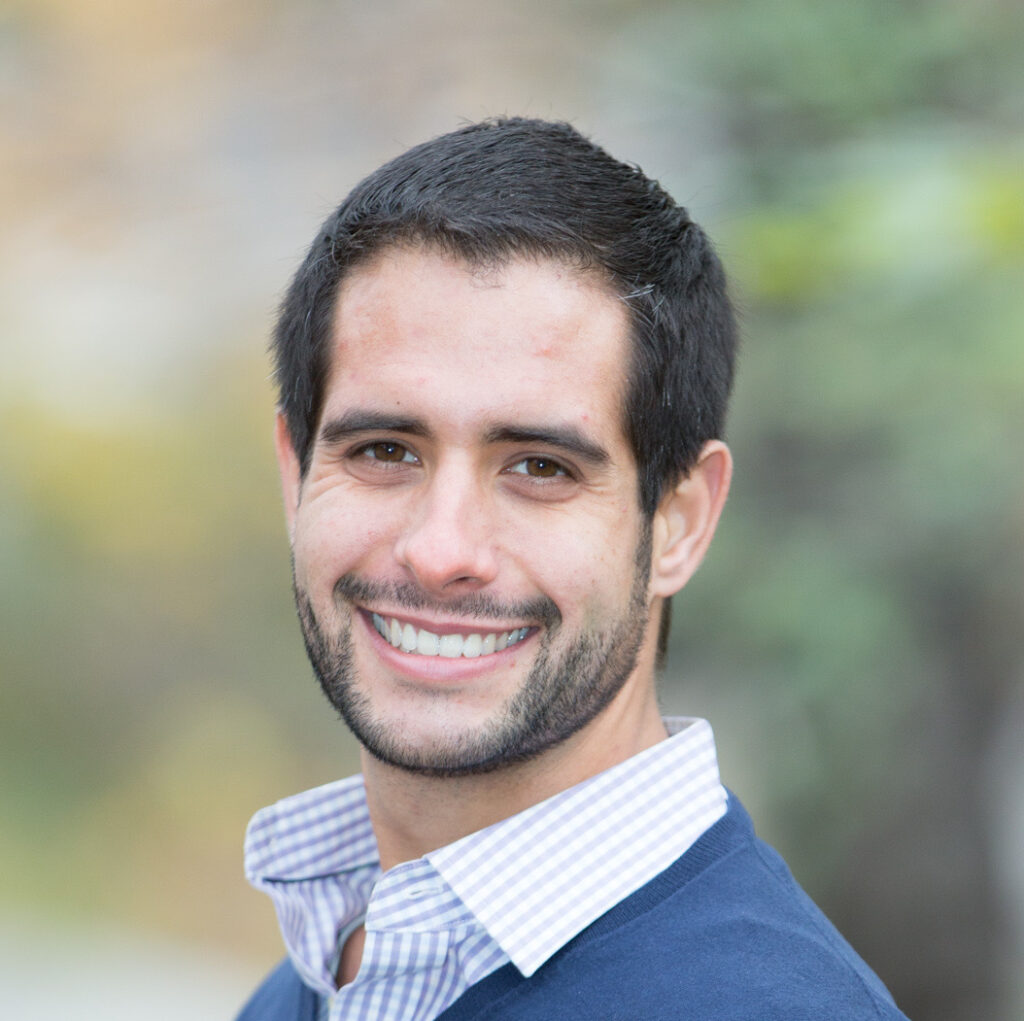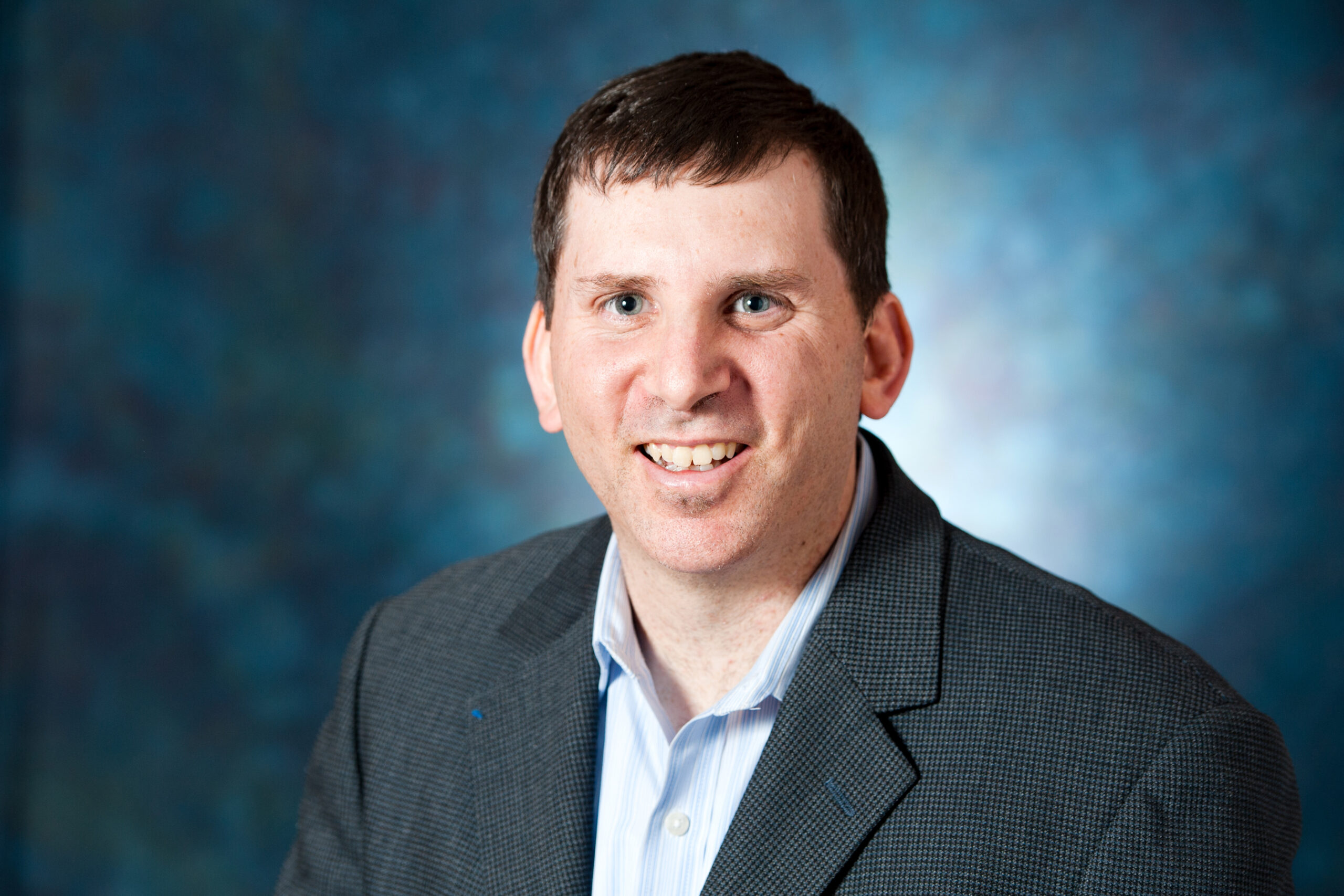
Throughout his career and life, Justin Rosen Smolen has sought to make Jewish community more inclusive. That’s why this latest chapter in his journey makes such perfect sense: On Aug. 5, he came aboard as Reconstructing Judaism’s Vice President for Thriving Communities and Partnerships.
In this role, Rosen Smolen oversees Reconstructing Judaism’s initiatives supporting nearly 100 congregations worldwide.
His team of eight staff members performs a wide scope of work. Among its essential activities, the Thriving Communities Department helps congregations navigate challenges; consults on rabbinic search and transition processes; leads on issues related to Israel, justice and inclusion; and spearheads Reconstructing Judaism’s conventions and other gatherings.
As vice president, he is also tasked with building partnerships to advance Jewish life and is a key member of the organization’s leadership team. He spent his first months in his role meeting with leaders across the movement, starting from a place of listening and learning.
In conversation, he radiates enthusiasm and warmth while displaying a wide-ranging intellect. He’s a strong advocate for dynamic Jewish community, especially in a time of heartbreak and seismic shifts. Despite, or even because of, the challenges, he sees much potential for new creative Jewish expressions.
As a teenager growing up in Suffolk County on Long Island, N.Y., he discovered a love of learning about Jewish values, history and text. While attending the joint program at the Jewish Theological Seminar and Columbia University, he felt a calling to pursue Jewish communal service.
One thing that’s always drawn me to Reconstructionism is its embrace of pluralism. Pluralism in how we understand the Jewish past, live out the Jewish present and plan for a Jewish future.
Justin Rosen Smolen
He earned master’s degrees in Jewish studies and nonprofit management. For more than a decade, has held leadership roles at a series of cutting-edge Jewish nonprofits, including the Jewish Education Project; Keshet, where he helped create more inclusive Jewish spaces for LGBTQ youth; and the Jewish Emergent Network, where he led collaboration and strategy for pioneering and unaffiliated Jewish communities.
He and his husband, Avi, live in New Jersey, where they are raising their two children: Aaron, 7, and Kaylee, 6. Like any proud parent, he cites his kids as a big inspiration for working to build even more inclusive, meaningful Jewish communities.
Recently, Rosen Smolen sat down with Reconstructing Judaism colleagues Bryan Schwartzman and Sam Wachs to discuss his early months on the job and his vision. (The interview has been edited for length and clarity.)
Bryan: What have you been up to in your first months at Reconstructing Judaism?
Justin: I’m trying to ask very good questions of my colleagues, of our lay leaders across our 95 affiliates and our rabbis across the field.
I am meeting with folks and developing a keener appreciation for our inspired history as a movement. I’m seeking to better understand the myriad questions and challenges we are facing now. I am working with my team in the Thriving Communities Department to be highly responsive to the pressing needs of today in Jewish congregations. Together, we’ll lay the brickwork and prepare our communities across the movement for a Jewish community and a world that’s going to look very different a decade from now — or two or three decades from now.
Bryan: You’ve talked about your affinity for Reconstructionist Judaism and the teachings of its founder, Rabbi Mordecai Kaplan. What specifically draws you to a Reconstructionist approach?
Justin: One thing that’s always drawn me to Reconstructionism is its embrace of pluralism. Pluralism in how we understand the Jewish past, live out the Jewish present and plan for a Jewish future.
When Mordechai Kaplan penned Judaism as a civilization in the 1930s, he understood not only the opportunity, but I believe the obligation we have as contemporary Jews to remake and refashion Judaism for our own.
And the Reconstructionist movement has been at the forefront of gender equality in Jewish life: LGBTQ visibility and inclusion in Jewish life; racial justice from a Jewish lens in the United States; and, of course, celebrating and elevating the experiences and leadership of Jews of Color.
Covenantal community means we recommit to and uphold norms of civil discourse, of treating people with the idea that we’re all created in the image of God.
Justin Rosen Smolen
Bryan: You’re starting at a time when communities and even families are divided over the war in Israel, Gaza and Lebanon. How can we strengthen the Jewish people during such a divisive time?
Justin: With the grief we are all holding in the wake of Oct. 7, we must ask what it means for us to be Jews, no matter what our opinions are and no matter where we live. This is a question that every single community across the spectrum of ideology is asking.
Of course, we’re going to have disagreements. And we are going to build a container to hold those disagreements and really work together in covenantal community to learn from one another and to chart a way forward that can reconcile and engage with those competing perspectives. And I’m so galvanized coming into the Reconstructionist movement that has been committed for the past 90 years in doing just that.
Sam: You mentioned the idea of covenantal community. What does it mean to you?
Justin: Covenantal community means we recommit to and uphold norms of civil discourse, of treating people with the idea that we’re all created in the image of God. Every human being — it doesn’t matter what perspective or political view, race, gender, sexual orientation— we’re all created in the image of God.
Now, covenantal community is hard. It requires that we act in good faith. We’re inextricably bound up with one another, and we must find a way forward. And it’s also the challenge that I believe we can lean into, given our strengths as a Jewish people and our values.
Bryan: What is something you’d like people to know about how you approach your work?
Justin: I learned as a young kid to do a lot of listening, although I certainly like to talk. And I’ve gotten better at this as an adult — to listen and to really take seriously the experiences and perspectives of other people. I may not share those experiences or perspectives and I may come to very different conclusions, but I begin with the assumption that people are operating in good faith.
Additional Resources
Listen to Justin Rosen Smolen on an episode of Hashivenu: Jewish Teachings on Resilience.
Read about how one Reconstructionist community navigated disagreement during wartime.








